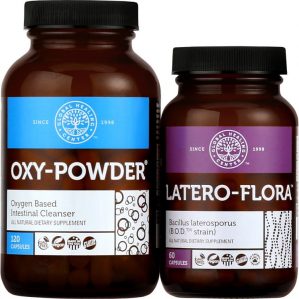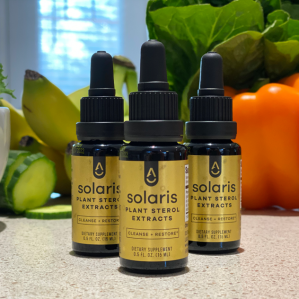What You Need To Know About Glutamine – An Amino Acid for Muscle Growth and Gut Health and 7 Incredible Benefits
Glutamine: An Amino Acid for Muscle Growth and Gut Health Support
Overview
Glutamine is a conditionally essential amino acid that plays a vital role in numerous physiological processes, including protein synthesis, immune
Research has highlighted glutamine’s importance in enhancing muscle recovery and growth, particularly among athletes and bodybuilders. Additionally, it has been shown to support gut health by maintaining the integrity of the intestinal lining, which is crucial for preventing conditions like leaky gut syndrome and inflammatory bowel diseases. The amino acid also serves as a primary fuel source for rapidly dividing cells, such as those in the immune system and the intestines, underscoring its role in promoting overall health and recovery.
Given the increasing interest in dietary supplements and functional foods, understanding glutamine’s physiological functions and potential health benefits is essential. This article explores the various aspects of this amino acid, including its sources, benefits, and therapeutic applications.
Functions of Glutamine
Glutamine is involved in numerous bodily functions:
- Protein Synthesis: As an amino acid, it is a building block for protein synthesis, which is essential for muscle growth and repair.
- Immune System Support: It serves as a vital fuel source for immune cells, including lymphocytes and macrophages, enhancing immune function and response.
- Intestinal Health: This amino acid is crucial for maintaining the integrity of the intestinal lining, supporting gut barrier function and preventing leaky gut syndrome.
- Nitrogen Transport: It aids in the transport of nitrogen between tissues, which is essential for maintaining a positive nitrogen balance and supporting anabolic processes.
- Energy Production: In periods of metabolic stress, this amino acid can be converted to glucose, providing energy for cells, especially in the brain and kidneys.
Benefits of Glutamine
Glutamine, a versatile amino acid, is involved in numerous physiological processes. Its benefits extend across various aspects of health, including muscle recovery, immune function, gut health, and beyond. This section delves into the key benefits of this amino acid.
- Muscle Recovery and Growth
This amino acid plays a critical role in muscle protein synthesis and helps prevent muscle breakdown, making it particularly beneficial for athletes and individuals engaged in intense physical activity.
- Enhanced Recovery: Supplementing with this amino acid post-exercise can reduce muscle soreness and improve recovery times. It helps replenish glycogen stores and supports muscle repair.
- Reduced Muscle Wasting: This amino acid is essential for preserving muscle mass, especially during periods of stress or prolonged physical activity. It helps mitigate muscle protein catabolism, maintaining lean body mass.
- Immune Function
This amino acid is a vital fuel source for immune cells, including lymphocytes and macrophages. Adequate levels are crucial for maintaining a robust immune response.
- Immune Support: During illness or physical stress, glutamine levels can drop, compromising immune function. Supplementation can enhance the immune response, reduce infection rates, and improve overall health.
- Critical Illness and Recovery: In critically ill patients, glutamine supplementation has been shown to reduce infection rates, shorten hospital stays, and improve recovery outcomes.
- Gut Health
This amino acid is essential for maintaining the integrity of the intestinal lining and supporting overall gut health.
- Intestinal Barrier Function: This amino acid helps maintain the tight junctions between intestinal cells, preventing “leaky gut” syndrome and protecting against toxins and pathogens.
- Inflammatory Bowel Diseases: For conditions like Crohn’s disease and ulcerative colitis, supplementation can reduce inflammation, improve gut barrier function, and alleviate symptoms.
- Wound Healing and Tissue Repair
This amino acid is crucial for collagen synthesis and tissue repair, making it beneficial for wound healing and recovery from surgery or trauma.
- Wound Healing: By supporting collagen production, this amino acid aids in the repair of skin and other tissues, speeding up the healing process.
- Post-Surgical Recovery: Supplementation can improve outcomes for patients recovering from surgery by enhancing immune function and tissue repair.
- Metabolic Health and Energy Production
This amino acid plays a role in gluconeogenesis, the process of producing glucose from non-carbohydrate sources, which is vital for energy production, especially during fasting or intense exercise.
- Energy Production: This amino acid is a substrate for gluconeogenesis, providing an energy source for cells, particularly in the liver and kidneys.
- Blood Sugar Regulation: It helps stabilize blood sugar levels, which can be beneficial for individuals with metabolic disorders.
- Cognitive Function and Neurotransmitter Synthesis
It is a precursor to the neurotransmitters glutamate and gamma-aminobutyric acid (GABA), which are critical for brain function.
- Cognitive Support: Adequate glutamine levels support cognitive function, memory, and learning by facilitating neurotransmitter synthesis.
- Mood Regulation: By influencing GABA production, this amino acid can help regulate mood and reduce symptoms of anxiety and depression.
- Stress and Anxiety Reduction
Glutamine can help mitigate the effects of stress by supporting adrenal function and balancing neurotransmitter levels.
- Adrenal Support: This amino acid aids in the production of stress-related hormones, supporting adrenal health and reducing the impact of chronic stress.
- Anxiety Reduction: By promoting GABA synthesis, glutamine can have a calming effect on the nervous system, helping to reduce anxiety.
This amino acid offers a wide range of benefits, from enhancing muscle recovery and supporting immune function to improving gut health and aiding in wound healing. Its versatile role in the body underscores the importance of maintaining adequate levels through diet or supplementation, particularly during periods of increased physical or psychological stress. Understanding these benefits can help individuals optimize their health and performance.
Therapeutic Applications of Glutamine
This amino acid’s versatile role in the body makes it a valuable nutrient for various therapeutic applications. From supporting gut health and immune function to aiding in recovery from illness and injury, glutamine supplementation can offer significant health benefits in clinical settings. This section explores the therapeutic uses of this amino acid.
- Gastrointestinal Health
This amino acid is crucial for maintaining the integrity of the intestinal lining and supporting overall gut health, making it beneficial for managing various gastrointestinal disorders.
- Irritable Bowel Syndrome (IBS): Supplementation with this amino acid can help reduce symptoms of IBS, such as abdominal pain, bloating, and diarrhea, by improving gut barrier function and reducing inflammation.
- Inflammatory Bowel Disease (IBD): For conditions like Crohn’s disease and ulcerative colitis, this amino acid can enhance intestinal barrier integrity, reduce inflammation, and promote mucosal healing.
- Leaky Gut Syndrome: Glutamine helps strengthen the tight junctions between intestinal cells, preventing increased intestinal permeability and protecting against toxins and pathogens.
- Immune Support
This amino acid is a critical fuel source for immune cells, such as lymphocytes and macrophages. Supplementation can bolster immune function, particularly in individuals under physical or psychological stress.
- Critical Illness and Surgery: In critically ill patients or those recovering from surgery, glutamine supplementation can reduce infection rates, shorten hospital stays, and improve overall recovery outcomes.
- Infection Recovery: Glutamine supports the immune system during recovery from infections by enhancing the function and proliferation of immune cells.
- Muscle Preservation and Recovery
Glutamine is vital for muscle protein synthesis and helps prevent muscle breakdown, making it beneficial for athletes and individuals undergoing physical rehabilitation.
- Muscle Soreness and Recovery: As mentioned before, supplementing with this amino acid post-exercise can reduce muscle soreness, improve recovery times, and support glycogen replenishment.
- Muscle Wasting Conditions: It can help preserve muscle mass in conditions such as cachexia, which is associated with chronic illnesses like cancer and HIV/AIDS.
- Wound Healing and Tissue Repair
Glutamine plays a crucial role in collagen synthesis and tissue repair, aiding in wound healing and recovery from injuries.
- Burns and Trauma: For patients with severe burns or traumatic injuries, glutamine supplementation can enhance wound healing, reduce the risk of infections, and improve overall recovery.
- Post-Surgical Recovery: This amino acid supports tissue repair and immune function, making it beneficial for patients recovering from surgical procedures.
this amino acid serves as a precursor to neurotransmitters such as glutamate and gamma-aminobutyric acid (GABA), which are critical for brain function.
- Cognitive Function: Adequate glutamine levels support cognitive function, memory, and learning by facilitating neurotransmitter synthesis.
- Mood Disorders: By influencing GABA production, glutamine can help regulate mood and reduce symptoms of anxiety and depression.
- Metabolic Health
It is involved in gluconeogenesis, the process of producing glucose from non-carbohydrate sources, which is vital for energy production and metabolic health.
- Blood Sugar Regulation: Glutamine supplementation can help stabilize blood sugar levels, providing an energy source for cells and supporting metabolic health, particularly in individuals with diabetes or metabolic syndrome.
- Weight Management: By promoting gut health and supporting muscle mass, glutamine can aid in weight management and overall metabolic function.
- Cancer Treatment Support
Glutamine supplementation can offer supportive benefits for cancer patients, particularly in managing treatment-related side effects.
- Chemotherapy and Radiotherapy: Glutamine can help reduce the severity of mucositis, a common side effect of chemotherapy and radiotherapy, by supporting the integrity of the mucosal lining.
- Cachexia Management: For cancer patients experiencing muscle wasting, this amino acid can help preserve muscle mass and improve nutritional status.
Glutamine’s therapeutic applications are diverse, ranging from supporting gut health and immune function to aiding in muscle preservation and wound healing. Its role in maintaining the integrity of the intestinal lining, bolstering the immune system, and promoting tissue repair makes it a valuable supplement in various clinical contexts. Individuals considering glutamine supplementation should consult with healthcare providers to tailor its use to their specific health needs and conditions.
Food Sources of Glutamine
This amino acid is abundantly found in both animal and plant-based foods, making it accessible through a well-balanced diet. Ensuring adequate intake of these foods can help maintain healthy glutamine levels, particularly during periods of stress or increased physical activity.
Animal-Based Sources
Animal products are rich sources of glutamine, providing high-quality protein and essential nutrients:
- Beef: Beef is one of the best sources of glutamine, offering substantial amounts per serving. It also provides essential amino acids and nutrients like iron and vitamin B12.
- Chicken: Chicken, especially the breast part, is rich in this amino acid and is a staple protein source for many diets.
- Fish: Fish such as salmon, tuna, and cod provide good amounts of this amino acid, along with healthy omega-3 fatty acids.
- Dairy Products: Milk, cheese, and yogurt are not only rich in glutamine but also provide calcium and probiotics, which support gut health.
- Eggs: Eggs contain a moderate amount of glutamine and are a versatile and nutritious food.
Plant-Based Sources
Several plant-based foods are also rich in glutamine, making them suitable for vegetarians and vegans:
- Legumes: Beans, lentils, and chickpeas are excellent plant-based sources of glutamine. They also provide fiber, vitamins, and minerals.
- Cabbage: Cabbage, especially raw, contains high levels of glutamine. It can be consumed in salads, coleslaw, or fermented as sauerkraut.
- Spinach: Spinach is another leafy green that offers a good amount of glutamine, along with iron and other essential nutrients.
- Beets: Beets are rich in this amino acid and other beneficial compounds like betalains, which have antioxidant properties.
- Parsley: Parsley is a herb that provides this amino acid and can be easily added to various dishes for flavor and nutritional boost.
- Tofu and Tempeh: Made from soybeans, tofu and tempeh are excellent sources of plant-based protein and glutamine.
Fermented Foods
Fermented foods are particularly rich in glutamine due to the fermentation process, which enhances their nutritional content:
- Miso: Miso, a fermented soybean paste, is a traditional Japanese seasoning rich in this amino acid and probiotics.
- Kimchi: Kimchi, a Korean fermented vegetable dish, contains this amino acid and is also a good source of vitamins and probiotics.
- Yogurt: As mentioned earlier, yogurt is not only a good source of this amino acid but also contains beneficial probiotics.
Incorporating a variety of these glutamine-rich foods into your diet can help maintain optimal health and support various bodily functions. Both animal and plant-based sources provide ample this amino acid, making it accessible for individuals with different dietary preferences. Regular consumption of these foods can ensure adequate glutamine levels, supporting muscle recovery, immune function, and gut health.
Glutamine Deficiency: Causes, Symptoms, and Implications
This is a critical amino acid involved in numerous bodily functions, including protein synthesis, immune support, and gut health. Although the body can produce this amino acid, certain conditions and stressors can lead to a deficiency. This sction explores the causes, symptoms, and implications of glutamine deficiency, highlighting the importance of maintaining adequate levels for overall health.
Causes of Glutamine Deficiency
Several factors can contribute to glutamine deficiency:
- Intense Physical Activity: Athletes and individuals engaged in strenuous exercise may experience glutamine depletion due to increased demand for muscle repair and recovery.
- Illness and Infection: Severe illnesses, infections, and chronic diseases can significantly reduce glutamine levels as the body utilizes it to support the immune system and repair tissues.
- Surgery and Trauma: Surgical procedures and traumatic injuries can deplete glutamine stores, as it is essential for wound healing and recovery.
- Stress: Both physical and psychological stress can lead to reduced glutamine levels, impacting overall health.
- Poor Diet: Inadequate intake of glutamine-rich foods can contribute to deficiency, especially in individuals with restrictive diets.
- Malabsorption Disorders: Conditions such as celiac disease, Crohn’s disease, and other gastrointestinal disorders can impair the absorption of this amino acid and other nutrients.
Symptoms of Deficiency
Deficiency of this amino acid o can manifest in various ways, affecting multiple systems in the body:
- Muscle Wasting: Since this amino acid is crucial for protein synthesis, deficiency can lead to muscle breakdown and decreased muscle mass.
- Impaired Immune Function: A lack of this amino acid can weaken the immune system, increasing susceptibility to infections and prolonging recovery times.
- Digestive Issues: Glutamine supports the integrity of the gut lining. Deficiency can lead to symptoms like bloating, diarrhea, and increased intestinal permeability, commonly known as leaky gut syndrome.
- Poor Wound Healing: Reduced glutamine levels can impair collagen synthesis and slow the wound healing process.
- Fatigue and Weakness: It is involved in energy production. Its deficiency can result in persistent fatigue and general weakness.
- Mood Changes: As a precursor to neurotransmitters, deficiency can affect mood, leading to issues like anxiety and depression.
Implications of Deficiency
The implications of glutamine deficiency extend beyond immediate symptoms, potentially affecting long-term health:
- Chronic Illness: Persistent low levels of this amino acid can contribute to the progression of chronic diseases, particularly those affecting the immune and digestive systems.
- Compromised Recovery: Individuals recovering from surgery, injury, or intense physical exertion may experience prolonged recovery times and increased risk of complications.
- Nutritional Deficiencies: Glutamine deficiency can exacerbate other nutritional deficiencies, compounding health problems.
- Increased Infection Risk: Weakened immune defenses due to glutamine deficiency can lead to frequent and severe infections.
Addressing the Deficiency
Addressing deficiency involves dietary and supplemental strategies:
- Dietary Intake: Incorporating glutamine-rich foods such as beef, chicken, fish, dairy products, eggs, legumes, spinach, and cabbage can help maintain adequate levels.
- Supplementation: Glutamine supplements in powder, capsule, or tablet form can be beneficial, especially for individuals with increased needs or malabsorption issues.
- Medical Guidance: Consulting a healthcare provider is crucial for individuals with chronic illnesses, digestive disorders, or other conditions that may affect glutamine levels. A healthcare provider can recommend appropriate dietary changes and supplementation.
Glutamine deficiency can have significant impacts on overall health, affecting muscle mass, immune function, gut health, and recovery from illness or injury. Understanding the causes and symptoms of deficiency is essential for preventing and addressing this condition. By ensuring adequate intake through diet and, when necessary, supplementation, individuals can support their body’s needs and maintain optimal health.
Glutamine Supplements and Dosage
Supplementation of this amino acid has become increasingly popular, particularly among athletes, individuals recovering from illness or surgery, and those with gastrointestinal disorders. This section explores the various forms of glutamine supplements available, recommended dosages, and considerations for specific conditions and populations.
Forms of Glutamine Supplements
Glutamine supplements come in several forms, making them accessible for various preferences and needs:
- Powder: Glutamine powder is a versatile form that can be easily mixed into water, juice, or smoothies. It is often preferred by athletes and bodybuilders due to its rapid absorption.
- Capsules/Tablets: These are convenient for those who prefer not to mix powders. They offer precise dosing and are easy to take on the go.
- Liquid: Liquid supplements with this amino acid are available but less common. They are useful for individuals who have difficulty swallowing pills or prefer a ready-to-drink option.
Recommended Dosage
The optimal dosage of glutamine can vary based on individual needs, health conditions, and goals. General guidelines for different purposes include:
- General Health and Maintenance: For maintaining overall health and supporting immune function, a typical dosage ranges from 5 to 10 grams per day.
- Athletic Performance and Recovery: Athletes and individuals engaged in intense physical activity may require higher doses. A common recommendation is 10 to 20 grams per day, divided into two to three doses.
- Gastrointestinal Health: For supporting gut health and treating conditions like irritable bowel syndrome (IBS) or inflammatory bowel disease (IBD), dosages typically range from 10 to 20 grams per day.
- Critical Illness and Recovery: Patients recovering from surgery, trauma, or severe illness may benefit from higher doses, often prescribed by healthcare providers. Dosages can range from 20 to 40 grams per day, depending on the severity of the condition.
Timing of Supplementation
The timing of glutamine supplementation can influence its effectiveness:
- Post-Workout: Taking glutamine immediately after exercise can help with muscle recovery and reduce muscle soreness.
- Before Bed: Consuming this amino acid before bed can support overnight recovery and repair processes.
- Between Meals: For general health and immune support, it can be taken between meals to ensure a steady supply.
Safety and Considerations
This amino acid is generally considered safe for most people when taken in appropriate dosages. However, there are some considerations to keep in mind:
- Medical Conditions: Individuals with liver or kidney disease should consult a healthcare provider before starting glutamine supplementation, as these conditions can affect how the body processes amino acids.
- Allergies: Those with allergies to certain foods should check the source of the glutamine supplement, as some are derived from wheat or other allergens.
- Interactions: While this amino acid is typically safe to use with other supplements and medications, it is always advisable to consult with a healthcare provider to avoid potential interactions.

Risks and Side Effects
While this is generally considered safe for most people, it can pose certain risks and side effects, especially when consumed in excessive amounts or by individuals with specific health conditions. Understanding these potential issues is crucial for ensuring safe supplementation.
Common Side Effects
For most people, glutamine supplementation does not cause significant side effects. However, some individuals may experience mild adverse reactions, including:
- Gastrointestinal Issues: Some people may experience digestive discomfort, such as bloating, gas, or diarrhea, especially at high doses.
- Allergic Reactions: Rarely, individuals might have allergic reactions to glutamine supplements, leading to symptoms like itching, rash, or shortness of breath.
Risks for Specific Populations
Certain groups of people need to exercise caution when using glutamine supplements due to potential health risks.
- Individuals with Liver or Kidney Disease: Glutamine is metabolized in the liver and kidneys. For those with compromised liver or kidney function, excessive this amino acid intake can pose a risk, as their bodies may struggle to process and eliminate the excess.
- Cancer Patients: There is some concern that glutamine supplementation could potentially promote the growth of certain cancers, as this amino acid is a vital nutrient for rapidly dividing cells, including cancer cells. However, research in this area is not conclusive, and cancer patients should consult their healthcare providers before taking glutamine supplements.
- Pregnant and Breastfeeding Women: While this amino acid is a naturally occurring amino acid, the safety of high-dose supplementation during pregnancy and breastfeeding has not been thoroughly studied. It is generally recommended that these individuals obtain this amino acid from dietary sources and consult their healthcare providers before using supplements.
Potential Interactions with Medications
Glutamine can interact with certain medications, which may alter its effectiveness or increase the risk of side effects:
- Anticonvulsants: This amino acid may interact with medications used to treat epilepsy and other seizure disorders, potentially reducing their effectiveness.
- Chemotherapy Drugs: Given the role of this amino acid in cell growth, there is concern about its interaction with chemotherapy drugs. Some studies suggest it might protect healthy cells during chemotherapy, while others caution against its use without medical supervision.
Overdose and Long-Term Use
Taking excessively high doses of glutamine over long periods can lead to potential health issues:
- Neurotoxicity: Very high doses of this amino acid might lead to an excessive buildup of glutamate in the brain, potentially causing neurotoxicity and symptoms such as headaches, dizziness, or confusion.
- Metabolic Imbalance: Overconsumption can disrupt the balance of other amino acids and metabolites in the body, potentially leading to metabolic imbalances.
Safe Use Guidelines
To minimize the risks and side effects associated with glutamine supplementation, consider the following guidelines:
- Dosage: Stick to recommended dosages, typically ranging from 5 to 20 grams per day, depending on individual needs and health conditions.
- Consult Healthcare Providers: Always consult with a healthcare provider before starting glutamine supplementation, especially if you have existing health conditions or are taking medications.
- Monitor for Side Effects: Pay attention to any adverse reactions and discontinue use if significant side effects occur.
While this amino acid offers numerous health benefits, it is important to be aware of its potential risks and side effects. Most people can safely use glutamine supplements within recommended dosages, but individuals with specific health conditions or concerns should seek medical advice before starting supplementation. By following safe use guidelines and monitoring for side effects, one can effectively harness the benefits of this amino acid while minimizing potential risks.
After Thoughts
Glutamine, an essential amino acid with multifaceted roles in the body, offers significant therapeutic benefits across various health conditions. From supporting gastrointestinal health and immune function to aiding in muscle recovery and neurological health, glutamine supplementation has shown promising results in clinical applications. Its ability to enhance wound healing, preserve muscle mass, and support metabolic processes underscores its importance in both preventive health and therapeutic interventions.
However, while this amino acid is generally safe for most individuals when used appropriately, it is essential to consider potential risks and interactions, particularly in specific patient populations and when taken in high doses. Consulting healthcare providers is crucial to tailor supplementation to individual needs and ensure safety.
As research continues to explore glutamine’s mechanisms and applications, its potential in improving outcomes for conditions such as inflammatory bowel disease, critical illness, and cancer treatment support becomes increasingly apparent. By integrating this amino acid into comprehensive treatment plans and nutritional strategies, healthcare providers can optimize patient care and enhance quality of life.
Start incorporating Black Cumin Oil into your diet today to help start enjoying its health benefits and experience a revitalized Optimal Health.
For natural and healing remedies, products, and supplements to help you live your most optimal healthy life, visit our store here!
Remember: Own Your Health!
If you enjoyed the information presented in this article, Please Share It. Help us reach more people and keep this website going! Thank you in advance!
Note: The information provided in this article is for educational purposes only and should not be considered medical advice. Please consult with a healthcare professional or registered dietitian before making any significant changes to your diet or lifestyle.
Frequently Asked Questions
- What is glutamine?
Answer: This amino acid is a conditionally essential amino acid that plays a critical role in various bodily functions, including protein synthesis, immune function, gut health, and energy production.
- What foods are high in glutamine?
Answer: Foods high in this amino acid include meat, fish, dairy products, eggs, beans, spinach, cabbage, and beets. Both animal and plant-based sources can provide ample glutamine to the diet.
- What are the benefits of glutamine supplementation?
Answer: This amino acid supplementation can support muscle recovery, enhance immune function, improve gut health, aid in wound healing, support neurological health, and help maintain metabolic health.
- Who should consider taking glutamine supplements?
Answer: Athletes, individuals with gastrointestinal disorders, those recovering from surgery or trauma, critically ill patients, and people undergoing intense physical or psychological stress may benefit from glutamine supplementation.
- What is the recommended dosage for glutamine supplements?
Answer: The recommended dosage varies depending on individual needs and health conditions. Typical dosages range from 5 to 20 grams per day. It is important to follow the advice of a healthcare provider for personalized dosing.
- Are there any side effects of taking glutamine supplements?
Answer: This amino acid is generally safe for most people. However, some may experience mild side effects like gastrointestinal discomfort, bloating, or diarrhea. Rarely, allergic reactions can occur. High doses should be avoided to prevent potential neurotoxicity and metabolic imbalances.
- Can glutamine help with muscle recovery?
Answer: Yes, this amino acid can help with muscle recovery by supporting protein synthesis, reducing muscle soreness, and replenishing glycogen stores, especially after intense physical activity.
- How does glutamine support gut health?
Answer: This amino acid supports gut health by maintaining the integrity of the intestinal lining, preventing “leaky gut” syndrome, and promoting the healing of the gut mucosa. It is beneficial for conditions like IBS and IBD.
- Is glutamine safe for long-term use?
Answer: This amino acid is generally safe for long-term use when taken at appropriate dosages. However, it is important to consult a healthcare provider to ensure it is suitable for long-term supplementation, especially for individuals with specific health conditions.
- Can glutamine interact with medications?
Answer: This amino acid can interact with certain medications, such as anticonvulsants and chemotherapy drugs. It is important to consult a healthcare provider before starting glutamine supplementation if you are on medication.
- Can pregnant or breastfeeding women take glutamine?
Answer: The safety of high-dose glutamine supplementation during pregnancy and breastfeeding has not been thoroughly studied. It is generally recommended that pregnant or breastfeeding women obtain this amino acid from dietary sources and consult their healthcare providers before using supplements.
- How does glutamine affect the immune system?
Answer: This amino acid serves as a critical fuel source for immune cells, enhancing their function and proliferation. It supports the immune response, particularly during periods of stress, illness, or recovery from infections.
- Can glutamine help with weight loss?
Answer: This amino acid may aid in weight loss indirectly by supporting gut health, preserving muscle mass, and stabilizing blood sugar levels. However, it should be part of a comprehensive weight management plan, including diet and exercise.
- What are the therapeutic applications of glutamine?
Answer: This amino acid has therapeutic applications in managing gastrointestinal disorders, supporting immune function, aiding in muscle recovery and preservation, enhancing wound healing, supporting neurological health, and improving metabolic health. It is also used in critical care settings to improve patient outcomes.
- Is glutamine the same as glutamate?
Answer: No, glutamine and glutamate are different. This is an amino acid, while glutamate is a neurotransmitter derived from this amino acid. This amino acid serves as a precursor to glutamate in the brain.
References
- Antonio, J., & Street, C. (1999). Glutamine: A potentially useful supplement for athletes. Canadian Journal of Applied Physiology, 24(1), 1-14.
- Kim, M. H., & Kim, H. (2017). The roles of glutamine in the intestine and its implication in intestinal diseases. International Journal of Molecular Sciences, 18(5), 1051.
- Castell, L. M., & Newsholme, E. A. (1997). The role of glutamine in the immune system and in intestinal function in catabolic states. Amino Acids, 12(1-3), 299-305.
- Wernerman, J. (2008). Clinical use of glutamine supplementation. Journal of Nutrition, 138(10), 2040S-2044S.
- Albrecht, J., & Zielińska, M. (2019). Glutamine as a precursor of glutamate and GABA in the nervous system. In Glutamine: Biochemistry, Physiology, and Clinical Applications (pp. 59-68). CRC Press.
- Albrecht, J., & Zielińska, M. (2019). Glutamine as a precursor of glutamate and GABA in the nervous system. In Glutamine: Biochemistry, Physiology, and Clinical Applications (pp. 59-68). CRC Press.
- Savarese, D. M., Savy, G., Vahdat, L., Wischmeyer, P. E., & Corey, B. (2003). Prevention of chemotherapy and radiation toxicity with glutamine. Cancer Treatment Reviews, 29(6), 501-513.
- Griffiths, R. D. (1997). Glutamine: The clinical evidence. Proceedings of the Nutrition Society, 56(2), 491-500.
- Novak, F., Heyland, D. K., Avenell, A., Drover, J. W., & Su, X. (2002). Glutamine supplementation in serious illness: A systematic review of the evidence. Critical Care Medicine, 30(9), 2022-2029.
- Van Der Hulst, R. R., Van Kreel, B. K., Von Meyenfeldt, M. F., Brummer, R. J., Arends, J. W., Deutz, N. E., & Soeters, P. B. (1993). Glutamine and the preservation of gut integrity. Lancet, 341(8857), 1363-1365.
- Calder, P. C., & Yaqoob, P. (1999). Glutamine and the immune system. Amino Acids, 17(3), 227-241.
- Wischmeyer, P. E. (2006). Glutamine: mode of action in critical illness. Critical Care Medicine, 34(9 Suppl), S545-S548.
- Vanek, V. W., Matarese, L. E., Robinson, M., Sacks, G. S., Young, L. S., & Kochevar, M. E. (2001). A.S.P.E.N. position paper: parenteral glutamine supplementation. Nutrition in Clinical Practice, 16(5), 279-281.
- Dechelotte, P., Hasselmann, M., Cynober, L., Allaouchiche, B., Coeffier, M., & Hecketsweiler, B. (2006). L-glutamine supplementation in critically ill patients: a French multicenter double-blind, placebo-controlled, randomized study. Critical Care Medicine, 34(3), 598-604.
- Gleeson, M. (2008). Dosing and efficacy of glutamine supplementation in human exercise and sport training. The Journal of Nutrition, 138(10), 2045S-2049S.
- Li, P., Yin, Y. L., Li, D., Kim, S. W., & Wu, G. (2007). Amino acids and immune function. British Journal of Nutrition, 98(2), 237-252.
- Wu, G. (2010). Functional amino acids in growth, reproduction, and health. Advances in Nutrition, 1(1), 31-37.
- Kouzarides, T. (2000). Acetylation: a regulatory modification to rival phosphorylation? EMBO Journal, 19(6), 1176-1179.
- Smith, R. J., & Wilmore, D. W. (1990). Glutamine nutrition and requirements. The Journal of Parenteral and Enteral Nutrition, 14(4 Suppl), 94S-99S.
- Choi, S., Lee, J. S., Lee, H. J., & Kim, Y. (2013). Role of glutamine in cell signaling and growth factor activity. Journal of Nutrition and Biochemistry, 24(3), 207-212.
Featured Imag Credit: Image by freepik;






















1 Comment
[…] Properties: Research has also shown that E-Caryophyllene can protect the gastrointestinal tract from damage. It has been studied for its potential to treat conditions like colitis, gastritis, and […]